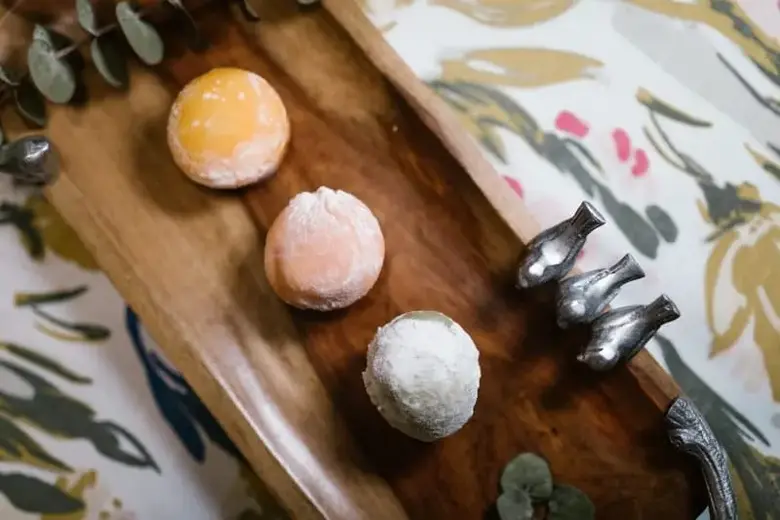How long does the mochi last?

Mochi, the popular Japanese rice cakes, can be difficult to preserve. Whether you make them yourself or buy them, it’s important to know the shelf life of the mochi.
How long does the mochi last? Homemade mochi is quite perishable and only lasts a couple of days at room temperature. They last between 7 and 14 days in the fridge and up to a month in the freezer. Unopened store-bought mochi has a longer shelf life thanks to the added preservatives and airtight packaging.
Read on to learn more about the shelf life and storage conditions of mochi, and how to spot bad mochi.
Does the mochi go bad?
Mochi is very perishable, especially when it is homemade. Mochi is made from short-grain glutinous rice . This is why the texture of mochi is chewy and sticky and is described as somewhere between rice and dough.
Other ingredients can be mixed with the mochi to give it other flavors and colors. But regardless of what you add, you need to store your mochi properly to prevent it from spoiling.
How to store the mochi
You can store the mochi at room temperature, in the fridge, and in the freezer.
When it comes to homemade mochi, it’s best to eat it right after making the rice cakes, since that’s when they’re softest.
Store the mochi at room temperature only if you plan to eat it in a day or two. Keep the rice cakes covered to prevent them from drying out. It is also important to keep the mochi away from sunlight and heat sources.
If the place where you live is humid, there is a good chance that the mochi will go moldy in a day. In these cases, you can store the mochi in the fridge.
The fridge is the next best place to store mochi if you plan to eat it in the days ahead. However, keep in mind that the cold air in the fridge causes the rice cakes to dry out and harden.
When storing mochi in the fridge, keep it tightly wrapped in food paper or store multiple rice cakes in a single airtight container. If you don’t plan on eating them soon, it’s best to keep the mochi in the freezer.
For store-bought mochi, follow the manufacturer’s recommendations for storage conditions for rice cakes. Since commercially made mochi often contain preservatives, they are more stable.
How to store mochi in the freezer
To store the mochi in the freezer, do the following
- Coat the rice cakes in cornstarch. This step is optional. However, it helps prevent the mochi from drying out and prevents the rice cakes from sticking together.
- Individually wrap the rice cakes in food paper.
- If you want to skip the previous step, put the starch-coated mochi in a zip-top bag and push out any excess air. But before you put the mochi in the bag, freeze the rice cakes by placing them on a cookie sheet and keeping them in the freezer until they harden and are no longer sticky.
- Label the mochi with the date.
How long does the mochi last?
Fresh mochi will keep for 1-2 days at room temperature, depending on how hot and humid your home is. If refrigerated, the shelf life of the mochi is extended up to 7-14 days. If you want to keep the mochi longer, store it in the freezer. Homemade mochi can last about a month in the freezer.
Store-bought mochi has a longer shelf life. Check the packaging for expiration date information on rice cakes.
Commercially made mochi in airtight containers can last a few months at room temperature and up to 12 months in the freezer. Once opened, they can last about a week in the fridge and up to 2 weeks in the freezer.
Signs that the mochi has gone bad
If you have mochi for a few days, inspect the rice cakes well before eating or serving them to your guests.
There are some signs of spoilage that will help you identify bad mochi.
First of all, the most common sign of bad mochi is mold. It’s common for mochi to go moldy, especially when left out at room temperature for too long.
Second, you should throw out the mochi if it’s too dry to eat. The outer layer of the mochi dries out quickly when the rice cakes are left uncovered in the fridge.
Finally, you should get rid of rice cakes if they have lost their springy, chewy texture and have become hard and stale.











